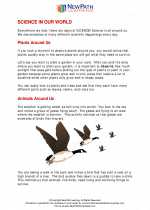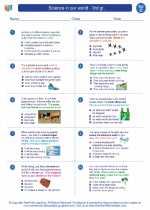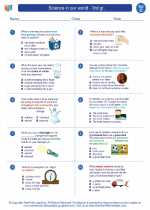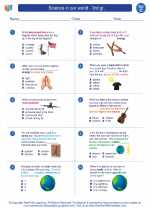Astronomical Events
An astronomical event is an observable occurrence related to the sky, such as eclipses, meteor showers, and planetary alignments. These events can be predicted and observed with the help of astronomical knowledge and tools.
Types of Astronomical Events
- Eclipses: Eclipses occur when one celestial body moves into the shadow of another. There are two main types of eclipses - solar and lunar.
- Meteor Showers: These events occur when Earth passes through the debris left behind by a comet, resulting in a display of shooting stars in the night sky.
- Planetary Alignments: When two or more planets appear to line up in the sky, it is known as a planetary alignment.
- Transits: Transits occur when a celestial body passes in front of another, such as the transit of Venus across the Sun.
- Comet Sightings: Comets are icy bodies that orbit the Sun, and their appearances in the night sky can be considered astronomical events.
Studying Astronomical Events
To study astronomical events, one can use various tools such as telescopes, binoculars, and astronomical software. Understanding the movements of celestial bodies and their orbits is crucial to predicting and observing these events.
Study Guide Questions
- What is an astronomical event?
- Explain the difference between a solar and lunar eclipse.
- How do meteor showers occur?
- What tools can be used to study astronomical events?
- Why is understanding celestial movements important for predicting astronomical events?
Conclusion
Astronomical events provide an opportunity to witness and understand the movements and interactions of celestial bodies. By studying these events, we can gain a deeper understanding of the universe and our place within it.
.◂Science Worksheets and Study Guides Third Grade. Science in our world - 3rd gr.
Study Guide Science in our world - 3rd gr.
Science in our world - 3rd gr.  Worksheet/Answer key
Worksheet/Answer key Science in our world - 3rd gr.
Science in our world - 3rd gr.  Worksheet/Answer key
Worksheet/Answer key Science in our world - 3rd gr.
Science in our world - 3rd gr.  Worksheet/Answer key
Worksheet/Answer key Science in our world - 3rd gr.
Science in our world - 3rd gr.  Worksheet/Answer key
Worksheet/Answer key Documenting Data
Documenting Data 

 Worksheet/Answer key
Worksheet/Answer key
 Worksheet/Answer key
Worksheet/Answer key
 Worksheet/Answer key
Worksheet/Answer key
 Worksheet/Answer key
Worksheet/Answer key

The resources above cover the following skills:
History and Nature of Science: A student should understand the history and nature of science. A student who meets the content standard should:
Develop an understanding that historical perspectives of scientific explanations demonstrate that scientific knowledge changes over time, building on prior knowledge.
Develop an understanding that scientific knowledge is ongoing and subject to change as new evidence becomes available through experimental and/or observational confirmation(s).